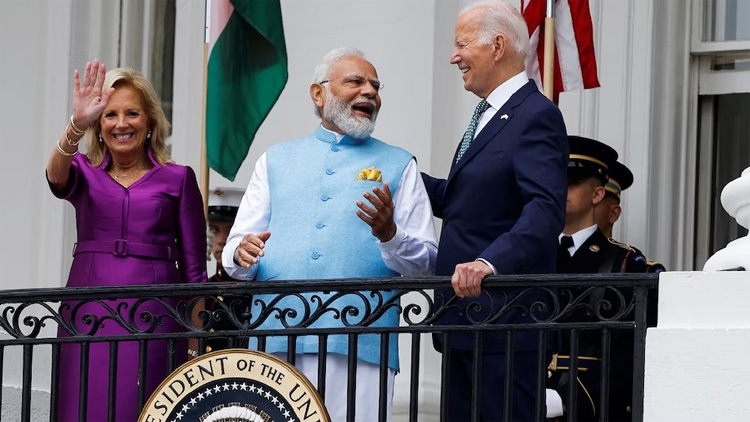Last week, Indian Prime Minister Narendra Modi concluded a historic state visit that observers on both sides expect will kickstart a new chapter in relations between the United States and India.
Over the past two decades, this relationship has gone from awkward resentment during the Cold War to full-throated embrace.
However, a recent essay by the veteran India hand Ashley J. Tellis in Foreign Affairs titled, “America’s Bad Bet on India”, warns that there are limits to US-India cooperation and Washington would be wise to wake up to them. Tellis holds the Tata Chair for Strategic Affairs at the Carnegie Endowment for International Peace and elaborated on his controversial essay on last week’s episode of “Grand Tamasha”, a podcast on Indian politics and policy co-produced by HT and the Carnegie Endowment for International Peace.
When it comes to a potential US-China conflict over Taiwan, Tellis thinks India will be reluctant to engage in military terms. “India will side with the US in any confrontation that we are engaged in with respect to China,” said Tellis. “But I think it is unlikely that India will involve itself militarily, short of any direct Chinese threats to India itself.” In other words, Tellis explains, “I think the distinction needs to be appreciated between support for the US and military involvement in a US-led campaign against China. I think India will do the former; I think it will not do the latter.” Tellis clarified that this is a contingent judgment because it depends on so many circumstances that are hard to foresee. “But a priori, it is not an unreasonable expectation to say that India will sit out active military involvement,” he concluded.
Of course, there is much India and the US can do short of coalition warfare when it comes to checking China’s rise. During the state visit, there was much fanfare over the joint US-India initiative on critical and emerging technology (iCET). Tellis believes that the initiative shows promise but warns it is still early days. “It is not just simply a work in progress, but we are at the earliest stages of what is a work in progress,” suggested Tellis. “I think it has transformational potential, but I am cautious when people describe it in dramatic terms as ‘the next big thing’. And the reason I am cautious is not that I devalue the transformational potential, but I just fear the fact that it has so many moving parts.”
Regarding India’s commitment to democracy, another question mark that hangs over the relationship, Tellis acknowledges that there are no easy answers for the Biden administration “The US government faces a dilemma, and it is a dilemma that is not unique to India but is not one that is going away either. How do you deal with problems involving your friends? Problems involving your adversaries are simple: you smack them around. Problems involving your friends are far more challenging to deal with,” stated Tellis. The scholar explained that the US has experience dealing with countries like Pakistan, who have been allies of convenience. But “dealing with India and the challenges of its democracy are entirely new for” America.

